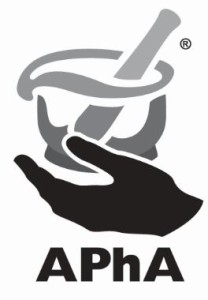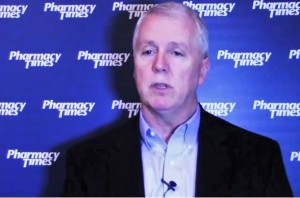- CPhA: Pharmacists should be on front lines of medical marijuana (drugstorenews.com)CPhA Calls for Pharmacists' Role in the Management and Dispensing of Medical Marijuana (pharmacists.ca)
Canadian Pharmacists Association...called for pharmacists be on the front lines of patient management and dispensing of medical marijuana...Pharmacists are medication experts and play a critical role in the management and monitoring of medication to ensure safe and optimal use...it is patient safety that is ultimately at the heart of CPhA's decision to update its position on the role of pharmacists in the management and dispensing of medical marijuana...(the) announcement marks a reversal for the organization, which opposed pharmacist distribution over lack of evidence of efficacy and concern over potential robberies…CPhA said its evolution on the issue was informed by three factors:
- concern from members over the impact lack of proper clinical oversight for using medical marijuana could have on patients;
- the findings of an independent report from KPMG that found pharmacist dispensation and management was the best option for patient safety and access;
- the results of a CphA-commissioned...survey in which 73% of respondents...agreed that medical marijuana should be treated like other medicines and only be available through a pharmacy.
- States Remove Barriers To Physician Assistants (forbes.com)
An increasing number of states are granting physician assistants more autonomy to increase access to patients amid a shortage of doctors and an influx of patients with health insurance under the Affordable Care Act...states are removing bureaucratic barriers that in the past led to redundant tasks or slowed the ability of patients to get the care they needed...for example, Gov. Chris Christie...signed into law legislation that removed the so-called "countersignature requirement," which previously required the PAs’ collaborating physician to countersign all medical orders...lawmakers passing such legislation say they are essentially granting physician assistants the ability to do what they are trained to do. Most have a two-year master’s degree, often from a program that runs about two years and includes three years of healthcare training...PAs are being granted "full prescriptive authority," which will allow them to write prescriptions for controlled substances. Legislation is wending its way through the Florida legislature that would make the state the 49th to have the ability to write such prescriptions.
- The New Responsibilities of Pharmacy Technicians (pharmacytimes.com)
Joe Moose, owner of Moose Professional Pharmacy, discusses the new responsibilities that pharmacy technicians are assuming.
- Collaborative Practice Agreements Open Opportunities, Liabilities for Pharmacists (pharmacytimes.com)AMCP - Where We Stand - Collaborative Drug Therapy Management (amcp.org)
...48 states and the District of Columbia, pharmacists’ scope of practice allows for collaborative practice agreements with prescribers—although each state has its own rules and nuances about what, where, and with whom pharmacists can collaborate... Antonio Ciaccia...Ohio Pharmacists Association... the state’s new collaborative practice agreement laws will have a major impact on all pharmacy practice settings, including compounding, long-term care, hospital, ambulatory, community, and consulting. While he believes that pharmacists have "more than adequate training" to perform the services permitted under the new law... Because of the variations in state pharmacy practice acts, pharmacists can best defend themselves against such liability claims by taking the time to familiarize themselves with the authority granted to them under their collaborative practice agreement to ensure that they do not exceed that authority. Pharmacists may also check with their malpractice insurance carrier...Despite the increased potential for malpractice and liability issues...expanded collaborative practice agreement law as a victory for prescribers, pharmacists, and patients...engagement of the pharmacist on the health care team is a great driver for improving outcomes...
- 3 Legislative and Regulatory Updates Pertinent to Pharmacists (pharmacytimes.com)
...at APhA’s 2016 Annual Meeting & Exposition...they discussed...the proposed nondiscrimination rule, pending pharmacist provider status legislation, and draft guidance on prescription drug abuse...
- Proposed Nondiscrimination Rule - Under this proposed rule, pharmacies would be required to offer language assistance services to patients with limited English, unless the pharmacy would face "undue financial burden," or if doing so would "result in a fundamental alternation in an entity’s health program or entity,"...also applies to the requirement that pharmacies provide auxiliary aids and services and the accessibility of programs through electronic and information technology...HHS does not expect compliance with the proposed rule to cost too much, and training employees on these new requirements is voluntary.
- Pharmacist Provider Status Legislation - legislation would allow pharmacists to be reimbursed for their services as long as the pharmacist serves in medically underserved areas, health professional shortage areas, or for medically underserved populations and follows the state’s scope of practice laws...there has been no opposition to the proposed legislation...cost will be a challenge...The next steps are getting a Congressional Budget Office score, meaning a cost estimate for the bill...they hope to see a score within a few weeks, and then a few weeks later, they can expect a House hearing.
- Draft Guidance on Prescription Drug Abuse - the Centers for Disease Control and Prevention issued draft guidance for prescribing opioids for chronic pain, which were fairly controversial...APhA’s comments on the guidelines included the fact that a team-based approach to care including pharmacists was needed. In addition, the guidelines should mention that the lowest-effective dose should be patient-specific, and more education is needed for health care professionals.
- Do Prescribing Doctors Act on Pharmacist Recommendations? (specialtypharmacytimes.com)
Among their list of responsibilities, pharmacists serve as an important member of an interdisciplinary care team to protect patient health and safety while minimizing costs...Existing literature shows that by communicating recommendations to prescribing doctors, pharmacists can help to measurably reduce costs, control chronic diseases like hypertension, diabetes, and hyperlipidemia, and improve patient outcomes...The prevalence of prescribing doctors acting upon pharmacist recommendations has been previously studied, with results ranging anywhere from 31% to 81%. Most assessments find that a pharmacist’s recommendation succeeds in modifying a doctor’s prescription about 50% of the time...Doctors are more likely to accept pharmacist recommendations intended to save costs (versus safety or guideline adherence), and they are more likely to accept recommendations to change or stop a medication (50%) than they are to start a new medication (41.7%)...
- Pharmacy Students Push for Provider Status on Capitol Hill (ashp.org)
Nearly 50 students visited 31 congressional offices on Capitol Hill earlier this month as part of ASHP’s Student Advocate Training & Legislative Day. The two-day conference, also known as SSHPTakesDC, gives student pharmacists hands-on experience in how to directly affect public policy...the students made the case for provider status legislation, the Pharmacy and Medically Underserved Areas Enhancement Act (H.R.592 and S.314), by emphasizing how the pharmacy school curriculum and postgraduate residency training prepare future practitioners to be patient care providers...“I feel like we had a good impact,” said Winston Johnson, a third-year student at Palm Beach Atlantic University in West Palm Beach...Conference attendees also met with Rep. Earl “Buddy” Carter, the only pharmacist serving in Congress. Carter praised the students for their foray into advocacy and encouraged them to stay engaged in the political process. “Politics are important to our profession,” he noted...It’s so inspiring to see these ASHP student leaders in action, and it is clear after seeing their poise, passion, and professionalism during their visit to Capitol Hill that the future of the profession of pharmacy is going to be in very good hands...
- What is the Status of Birth Control Prescribing Among California Pharmacists? (pharmacytimes.com)
Jon Roth, CEO of the California Pharmacists Association, discusses the status of birth control prescribing among pharmacists in California.
- The Technician’s Evolving Responsibilities in Care Transitions (pharmacytimes.com)
Neil Williams, PharmD, CPP, Clinical Pharmacist Coordinator for Community Care of North Carolina, discusses how the responsibilities assumed by pharmacy technicians during care transitions will continue to evolve.
- The State of Provider Status: An Update for Pharmacy Students (pharmacytimes.com)
As the pharmacy landscape shifts and evolves, pharmacists across the country continue to work toward a common and crucial goal: gaining legislative recognition as health care providers...Gaining provider status is a complex and multifaceted objective, but at its heart is the exclusion of pharmacists from the Social Security Act. Exclusion of pharmacists from the SSA prevents many state and private health care plans from compensating pharmacists for patient care services...the omission of pharmacists from the SSA also creates barriers for Medicare beneficiaries who seek to utilize these services in outpatient settings...While provider status efforts are crucial to the pharmacy profession, they’re equally important to patients...Gaining ground in the states...a number of state laws passed in 2015 have given advocates much to celebrate.
- North Dakota Governor Jack Dalrymple signed into law 4 bills that expanded the role of pharmacists in the Peace Garden State and recognized them as health care providers...
- ...Washington Governor Jay Inslee’s signing of SB 5557...The first bill in the country to require the inclusion of pharmacists in health insurance provider networks...amends the state’s Every Category of Health Care Providers law, which obliges commercial health plans to include every category of health care provider within an individual’s participating provider network.
- ...Oregon governor Kate Brown signed HB 2028 into law...bill permits pharmacists to receive reimbursement for performing clinical pharmacy services, enabling them to more fully use their skills and knowledge to treat patients.
- ...the federal arena...federal recognition remains the primary goal for many proponents of provider status...a proposed bill has given advocates hope that such a victory is well within reach...the Pharmacy and Medically Underserved Areas Enhancement Act would amend the SSA to cover pharmacists’ services under Medicare Part B, but only if these services are provided in areas of the country that the Health Resources Services Administration defines as medically underserved areas...The bill is awaiting approval...
Pharmacy students are the future of the profession and...they will be the ones most impacted by provider status...Earning legislative recognition as health care providers will ensure that the next generation of pharmacists is able to treat patients to the full extent of their knowledge and abilities...






